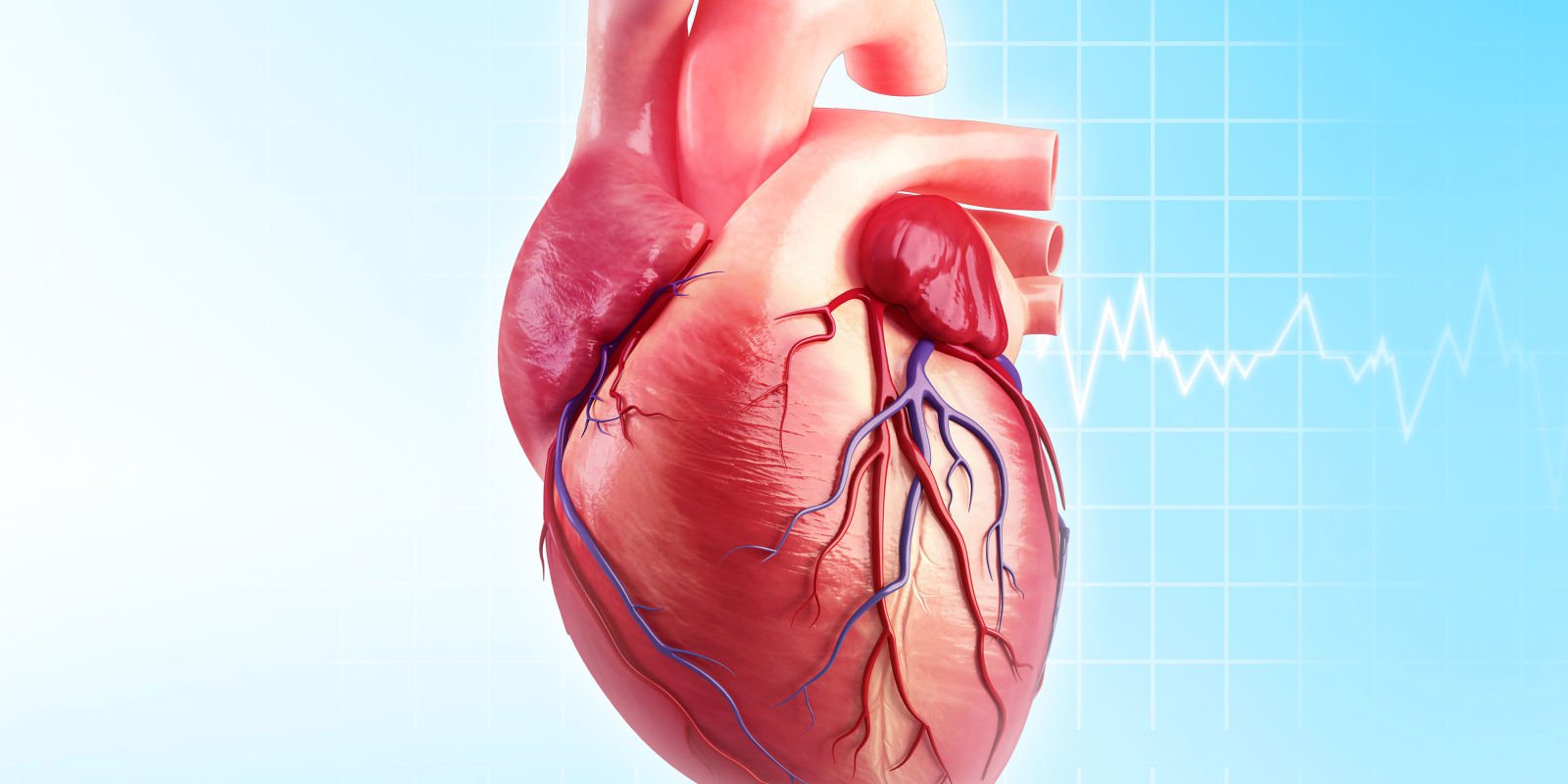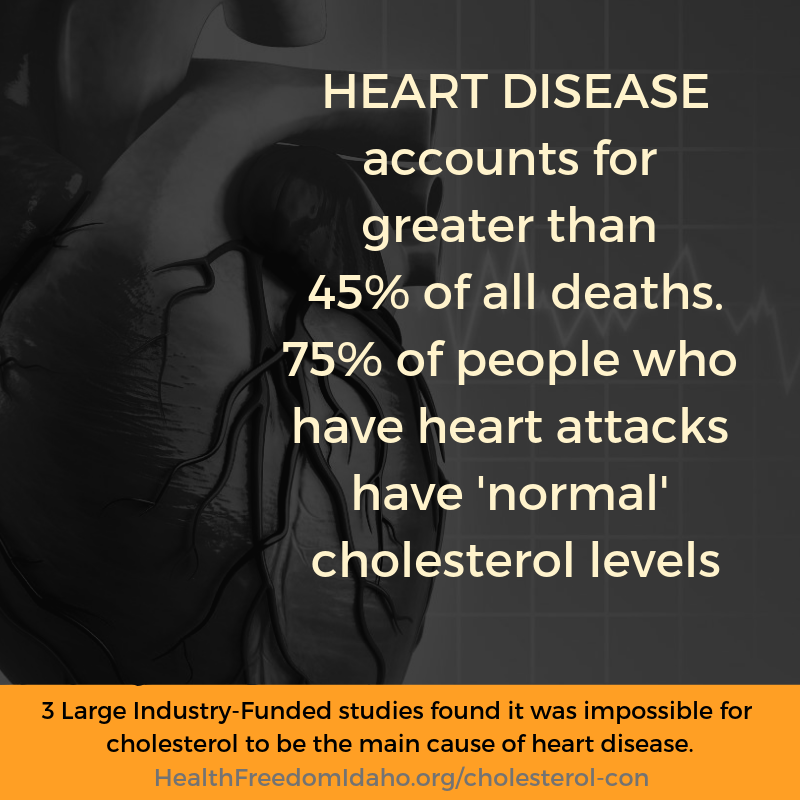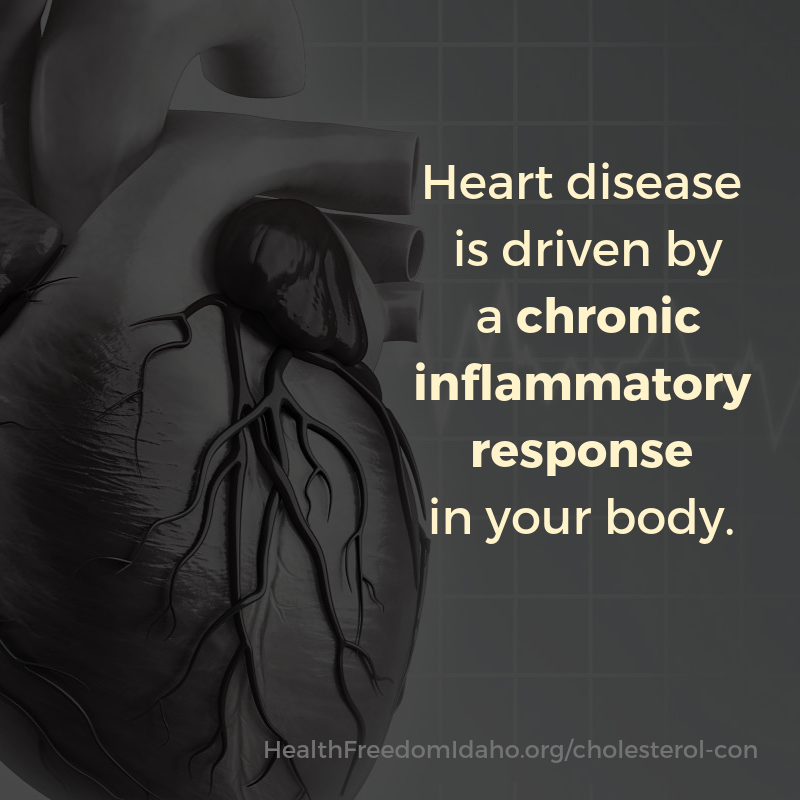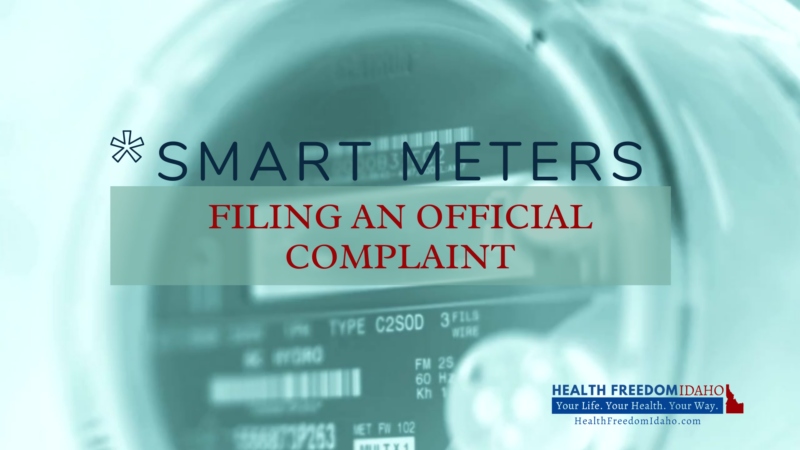Heart Disease. What if Cholesterol isn’t to Blame?

Here’s a secret most drug manufacturers don’t want you to know – millions of people die from heart attacks with normal cholesterol levels.Three Large Industry-Funded studies found it was impossible for cholesterol to be the main cause of heart disease. For years, decades in fact, we have been conned into thinking that high cholesterol levels were contributing factors to heart disease. “Cholesterol and heart disease has been almost synonymous for the last half-century. Cholesterol has been portrayed as the Darth Vader to our arteries and our heart.”, Ron Rosedale, MD. While heart disease is a real health problem, cholesterol isn’t necessarily to blame.
“Cholesterol is ESSENTIAL to every cell in the body.”
Would you believe that cholesterol is a good thing?
Cholesterol is a fatty substance produced by the liver that performs or assists in thousands of bodily functions such as building cell membranes, nerve sheaths, and critical for your brain.25% of the cholesterol in our body is found in the brain. It works to facilitate membrane function and is the raw material for making progesterone, estrogen, cortisol, testosterone and vitamin D.

Learn more about cholesterol’s benefits on this interview from Healthmade Radio with Dr. Jack Wolfson and Dr. Michael Karlfeldt
It was determined many years ago that the majority of cholesterol in your bloodstream
comes from what your liver is manufacturing and distributing. The amount of cholesterol that one eats plays little role in determining your cholesterol levels. It is also known that HDL shuttles cholesterol away from tissues, and away from your arteries, back to your liver. That is why HDL is called the “good cholesterol;” because it is supposedly taking cholesterol away from your arteries. But let’s think about that.
- Why does your liver make sure that you have plenty of cholesterol?
- Why is HDL taking cholesterol back to your liver?
- Why not take it right to your kidneys, or your intestines to get rid of it?
The body’s natural process of taking cholesterol back to your liver so that your liver can recycle it; put it back into other particles to be taken to tissues and cells that need it. Your body is trying to make and conserve the cholesterol for the precise reason that it is so important, indeed vital, for health. 3
Cholesterol-Lowering Drugs are Dangerous.
Cholesterol-lowering drugs are dispensed like candy at the doctor’s office. Turn on the TV or radio and you are assured to hear a commercial about cholesterol dangers and why you need a drug to lower your numbers. Even your next-door neighbor or work colleague is bragging about the drug that lowered their numbers.
If this sounds familiar, you are not alone. Statin drugs used to combat high cholesterol actually do way more harm than good…they kill more people than they save. Millions of people swallow pharmaceuticals to lower cholesterol. This is totally unnecessary “the benefits from statin treatment have been exaggerated”. 2
Dr. Mercola says, “Using drugs to reduce cholesterol levels or inflammation may increase your risk of fatal side effects; natural remedies that are not associated with dangerous health problems include magnesium, balancing essential fats and reducing hyperinsulinemia.”
Cholesterol is one of the “most vital” molecules in the body and prevents infection, cancer, muscle pain and other conditions in elderly people. Lowering cholesterol with medications for primary cardiovascular prevention in those aged over 60 is a total waste of time and resources, whereas altering your lifestyle is the single most important way to achieve a good quality of life. -Vascular and endovascular surgery expert Professor Sherif Sultan from the University of Ireland
This information is more than two years old, so why are doctor’s still prescribing cholesterol reducing drugs to patients to ‘reduce their risk of heart disease’? Perhaps its the $316,000,000 paid by patients and insurance companies each year for treatments for heart disease that plays a role in their recommendations. 5
If not cholesterol then what is causing heart disease?
The fixation on cholesterol as a major cause of heart disease defies the last 15 years of science and deflects from real causes such as the damage (via glycation) that sugars such as glucose and fructose inflict on tissues, including the lining of arteries, causing chronic inflammation and resultant plaque. Ron Rosedale, MD
Hundreds of excellent scientific articles have linked insulin resistance and more recently leptin resistance to cardiovascular disease
much more strongly than cholesterol, and they are in fact at least partially responsible for cholesterol abnormalities. For instance, insulin and leptin
resistance result in “small dense” LDL particles and a greater number of particles. This is much more important than the total cholesterol number.

The focus therefore should be to reduce inflammation.
Chronic inflammation at the cellular level is the root cause of most all diseases.
This is a serious concern that most regular MD’s aren’t treating. Rather, they are just prescribing Big Pharma medications to treat the symptoms of inflammation, rather than the causes of the inflammation itself. Dr. Wolfson, Paleo Carteologist suggests, instead of taking a statin for the rest of your life to treat a symptom, seek out a natural doctor who will get to the cause of why your arteries are inflamed.
Concerned with heart disease 11 ways to reduce your risk of heart disease?
Research Resources:
3. https://oawhealth.com/article/cholesterol-is-not-the-cause-of-heart-disease/
4. https://www.thedrswolfson.com/inflammation-causes-symptoms-natural-treatments/
5. https://www.drugs.com/slideshow/most-expensive-conditions-to-treat-1123
6 Heart Disease, Stroke and Research Statistics At-a-Glance. American Heart Association. Accessed January 21, 2017 at https://www.heart.org/idc/groups/ahamah-public/@wcm/@sop/@smd/documents/downloadable/ucm_480086.pdf






